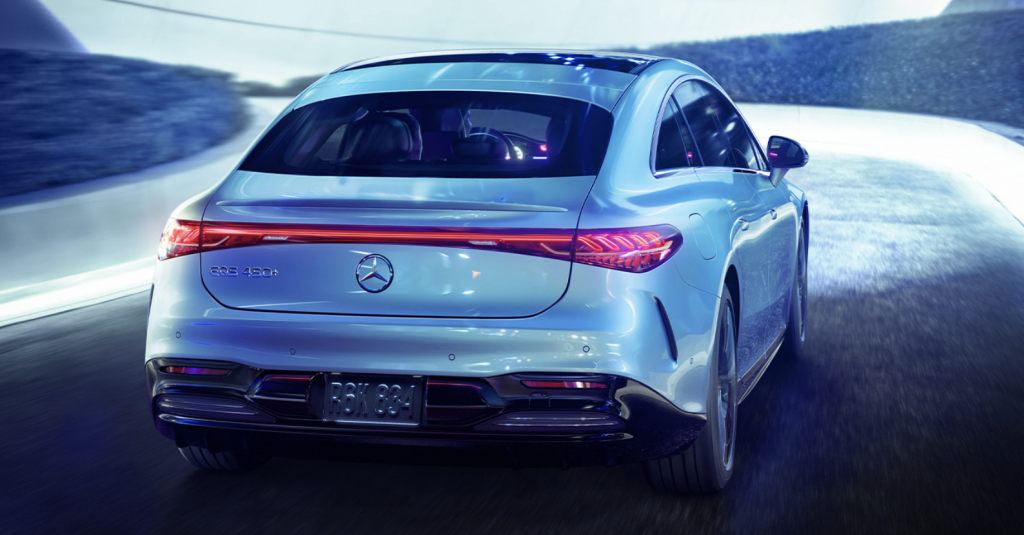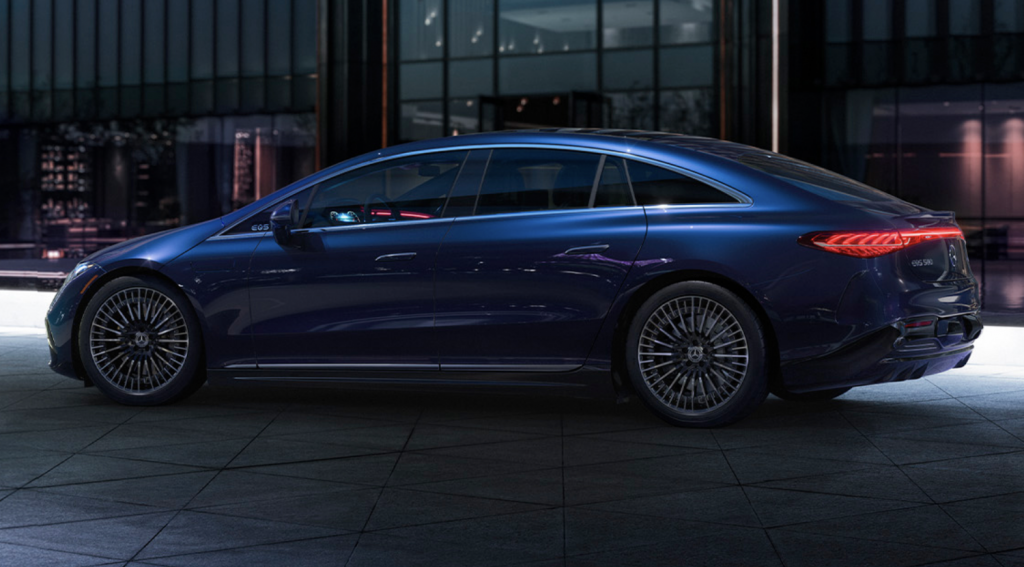Mercedes Electric Cars Are Outdoing Teslas?
The latest Mercedes electric car is outdoing Tesla in an impressive way.
This article is more than 2 years old

As Electric vehicles become more popular, Tesla is facing competition from major manufacturers like Volkswagen, General Motors, and most recently Mercedes-Benz. Following January’s launch of the Vision EQXX, the German carmaker said the EV completed a long-range test of over 1,000 km on a single battery charge. The feat is one of the longest distances covered by an electric vehicle on a single charge.
According to The Verge, Mercedes test took place took across several European cities. Starting in Germany, the Vision EQXX traveled through Switzerland and Italy before arriving at its destination in the port town of Cassis near Marseille in the South of France. Temperatures were in the 37 to 64 degrees Fahrenheit range, and the vehicle traveled at an average speed of 54 mph. The distance covered by Mercedes’ latest creation was about 621 miles, which is more than twice the range most EVs can travel.
Upon arrival, the remaining charge on the Vision EQXX was around 15%, leaving the car with enough power to travel for 87 miles more. Additionally, the Mercedes vehicle’s average consumption was a record-breaking low of 7.1 kWh per 62 miles. Although still a concept, the EV now holds the record for the most miles on a single charge. In second place is Lucid with 520 miles and Tesla rounds up the top three with 402 miles.
When Mercedes introduced the Vision EQXX earlier this year, it was primarily an experiment in battery efficiency. The EV was unveiled virtually at the Consumers Electronics Show (CES), due to concerns about the global pandemic. The concept vehicle is solar-powered and designed with recycled and sustainable materials including mushroom fibers, ground-up cacti, and trash such as food scraps, the Daily Mail reports. The car’s sleek, sporty appearance and eye-catching design could even rival other luxury electric vehicles like the Tesla Roadster, Porsche Taycan, and Audi E-Tron GT.

During the Consumers Electronics Show, Mercedes predicted that the Vision EQXX would consume energy at a rate of 10kWh per 100 kilometers or more than 6 miles per kWh. Those tests were based on a simulation of real-world traffic conditions. And the car did even better under actual real-world conditions. As such, many of its technological advancements will be used in future production vehicles through the Mercedes-Benz Modular Architecture.
As impressive as Mercedes’ range test was, the U.S Environmental Protection Agency, along with Europe’s Worldwide Harmonized Light Vehicle Test Procedure, will have to certify the EV range independently. Most of these cars available today have a range between 200 and 300 miles, while some earlier models have less. It’s worth noting that EV range is highly subjective. Even the EPA’s rating system typically excludes steep hill climbing and the effects of cold weather, which can wear down the battery much faster.
Interestingly, Mercedes didn’t perform its range test in perfect conditions, The Verge said. The route included steep, mountainous conditions, construction work, and other travel hazards. The weather wasn’t kind either, with temperatures going from chilly mountain air to more normal conditions. This helped show off the Vision EQXX’s performance in several settings. But the EV did not encounter snow or freezing conditions, which has been known to drain the energy from EV batteries.










